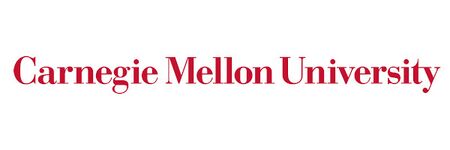Carnegie Mellon University
- Members
Carnegie Mellon University (CMU) is a private research university based in Pittsburgh, Pennsylvania. Founded in 1900, the university is the result of a merger of the Carnegie Institute of Technology and the Mellon Institute of Industrial Research. Established by Andrew Carnegie as the Carnegie Technical Schools, the university became the Carnegie Institute of Technology in 1912 and began granting four-year degrees. In 1967, the Carnegie Institute of Technology merged with the Mellon Institute of Industrial Research, formerly a part of the University of Pittsburgh. Since then, the university has operated as a single institution.
Activities

|
Low-cost Air Quality Monitoring RAMPs in Pittsburgh PA | |
| The proposed project will deploy 30 Real Time, Multi-Pollutant Sensors (RAMPs) at traffic intersections currently managed by the Scalable Urban Traffic Control (SURTRAC) Intelligent Traffic control system, an adaptive traffic control system that optimizes traffic flows in the East Liberty corridor of Pittsburgh (see figure below). These RAMP sensors are portable, low-cost sensors for gaseous air pollutants and particulate matter (PM) that have been developed at Carnegie Mellon and will be mounted on utility poles, using the access already provided by SURTRAC for their equipment.
The existing SURTRAC architecture in East Liberty provides an important platform to study urban air quality through unprecedented approaches that could be replicated across city neighborhoods and which could eventually be scaled across the Pittsburgh metropolitan region. No other system like this currently exists. | ||

|
Pittsburgh building portfolio cyber-secure, real-time utility data integration and AI analysis | |
| This project is expanding on a successful 5 building pilot with the City of Pittsburgh to integrate most of the 167 city building’s real-time (15 minute interval) utility and usage data in the BuildFit application and BOSS Controls Smart Plugs. Using visualizations and artificial intelligence algorithms developed at the Carnegie Mellon University (CMU) School of Architecture (SOA), BuildFit will then provide recommendations for utility savings, sub-metering and indoor environmental quality (IEQ) optimization. The project will also allow for comprehensive support for the Pittsburgh Building Benchmarking Ordinance and Regional Energy Strategy (Power of 32) and 2030 District Challenge to improve energy resiliency and efficiency. Another important feature of the software and hardware components of this project will be defining and implementing the cyber security standards for smart building components and software in conjunction with NIST and other key government agencies. This will also include the first Smart Building/Smart City independent training, testing and certification lab at the Energy Innovation Center in Pittsburgh, PA | ||

|
Tri-State Region-PA-WV-OH-Food System Project | |
| This project intends to develop and implement a plan to increase the supply of local food available to residents of the Pittsburgh food shed (200 mile radius) in several states. By using a data-driven strategic plan as a guide, it envisions a series of targeted interventions to increase the number of producers, add to the variety of the local food inventory, create and enhance aggregation entities to the distribution system, reduce choke-points in supply chains, expand the number of distribution opportunities, and organize consumer demand in ways that improve the equitability of the food system. | ||
Details
The university has seven colleges and independent schools, including the College of Engineering, College of Fine Arts, Dietrich College of Humanities and Social Sciences, Mellon College of Science, Tepper School of Business, Heinz College of Information Systems and Public Policy, and the School of Computer Science. The university has its main campus located 5 miles (8 km) from Downtown Pittsburgh, and the university also has over a dozen degree-granting locations in six continents, including degree-granting campuses in Qatar and Silicon Valley.
CMU is classified among "R1: Doctoral Universities – Very High Research Activity". In 2019, the university had research and development (R&D) expenditures of $359 million. Past and present faculty and alumni include 20 Nobel Prize laureates, 13 Turing Award winners, 26 Members of the American Academy of Arts and Sciences, 39 Fellows of the American Association for the Advancement of Science, 91 Members of the National Academies, 142 Emmy Award winners, 52 Tony Award laureates, and 12 Academy Award winners. Carnegie Mellon enrolls 15,818 students across its multiple campuses from 117 countries, employs more than 1,400 faculty members, and has an active alumni base of over 112,000.




